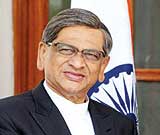When 22-year-old Nitin Garg left his prosperous hometown of Ludhiana, Punjab, to pursue an accounts degree in Melbourne last year, he promised his parents that he would call them every week. However, the phone call they received on the first weekend of 2010 shattered their lives.
On the night of Saturday, January 2, one of Garg’s friends informed the family that the young man had been stabbed by some young Australians. Garg, who had been studying in Australia for the last three years, was attacked in a park at around 10pm while he was walking towards the Hungry Jacks fast-food joint where he worked part-time. He staggered into the restaurant and pleaded for help before collapsing. Taken to the hospital, Garg died on arrival.
Clearly, life is not a walk in the park for Indian students in Australia. The issue of racial violence is back on centre stage, with External Affairs Minister S.M. Krishna describing it as "an uncivilised and brutal attack on innocent Indians". Calling on the Australian authorities to speedily bring to book those responsible for the crime, he added: “It certainly will have some bearing on the bilateral ties between our two countries. I hope the Australian Government will take necessary action and not force India to look to other ways. We will not tolerate it anymore.”
|

|
“It certainly will have some bearing on the bilateral ties between our two countries. I hope the Australian Government will take necessary action and not force India to look to other ways. We will not tolerate it anymore.”
S. M. Krishna
Minister of External Affairs |
In diplomatic terms, the Indian minister’s statement was akin to a slap on the face. But then the normally unflappable Krishna had reasons for using such strong language. Garg’s murder happened barely a couple of months after visits by senior Australian ministers and politicians, who assured potential candidates and their families that Australia was a safe place to study and live.
While Garg’s family claimed it was a racist attack, acting Victorian Premier Rob Hulls said people should not jump to conclusions. Deputy Police Commissioner Kieran Walshe denied claims that Melbourne was a hotbed for racist attacks against Indian students. “I don’t believe there have been any really detailed racist motives around assaults on Indian people in the past. In some cases there may well be, but in the general sense of it, a lot of attacks have been around opportunistic theft, or opportunistic robbery,” he said.
However, he would not comment on reports that neither Garg’s wallet nor money was stolen.
It was not the first time Garg had been attacked. He had been beaten and threatened with a knife by a gang at a commuter train station just over a year ago.
The murder calls into question Australia’s claim as a safe destination that promises an excellent life for young professionals. The attacks have sparked wide-ranging discussions on racism and discrimination in Australia, a nation still raw from the 2005 Cronulla race riots where thousands of Anglo-Australians engaged in violent clashes with Australian youth of Middle Eastern appearance at a Sydney beach.
The violence against Indian students has already dented the $15 billion-a-year overseas student market, which is Australia’s third largest earner after coal and iron ore. Tourism Australia's forecasting agency has predicted a 20 per cent drop in the number of Indians studying in Australia this year. Word is out that Australian colleges treat Indian students like cash cows. Students are fed up with the quality of education and the difficulties in breaking into the Australian job market, apart from the cultural problems they encounter. The latest attack on Garg may force them to turn elsewhere.
|